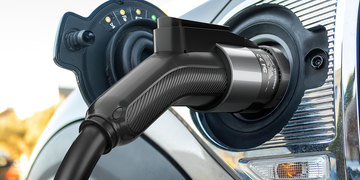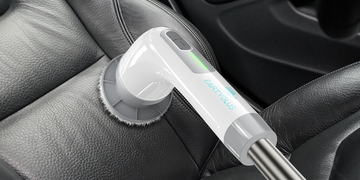What's the difference between a Level 1 and Level 2 EV charger? While a Level 1 charger will typically get 4 miles of driving range per hour of charge, a Level 2 charger will get an average of 32 miles of driving range per hour of charge.
Among the key components of this infrastructure are Level 1 and Level 2 EV chargers. While both serve the purpose of replenishing an EV's battery, they differ significantly in terms of charging speed, installation requirements, and versatility. Let's delve into the distinctions between Level 1 and Level 2 EV chargers to better understand their respective roles in the EV ecosystem. The primary difference between a Level 1 and Level 2 EV charger lies in their charging speed and power output:
Voltage and Current:
Level 1 chargers operate on a standard 120-volt household outlet and typically provide charging at a rate of around 2 to 5 miles of range per hour (depending on the vehicle).
Level 2 chargers operate on 240 volts, delivering higher power to the vehicle's battery. They can provide charging at a rate of around 10 to 30 miles of range per hour, significantly faster than Level 1 chargers.
Charging Time:
Due to their higher voltage and power output, Level 2 chargers offer faster charging times compared to Level 1 chargers. While Level 1 chargers are suitable for overnight charging or topping up during the day, Level 2 chargers can fully recharge an electric vehicle in a matter of hours, making them more convenient for everyday use.
What is a Level 1 EV Charger?
Level 1 EV chargers are the most basic type of electric vehicle charging equipment. They operate using a standard 120-volt household outlet, making them compatible with virtually any electrical socket. Level 1 chargers typically provide charging at a rate of around 2 to 5 miles of range per hour, depending on the vehicle's battery capacity and efficiency.
What is a Level 2 EV Charger?
Level 2 EV chargers, on the other hand, offer faster charging speeds and greater convenience compared to Level 1 chargers. These chargers operate on a higher voltage of 240 volts, delivering more power to the vehicle's battery. As a result, Level 2 chargers can provide charging at a rate of around 10 to 30 miles of range per hour, significantly faster than Level 1 chargers.
What's the difference between a Level 1 and Level 2 EV charger?
Charging Speed:
Level 1 chargers offer relatively slow charging, suitable for overnight charging or occasional top-ups during the day.
Level 2 chargers provide faster charging times, making them more convenient for everyday use and allowing EV owners to fully recharge their vehicles in a matter of hours.
Installation Requirements:
Level 1 chargers can be plugged into a standard household outlet, requiring no special installation beyond access to electricity.
Level 2 chargers necessitate a dedicated 240-volt circuit and may require professional installation by a qualified electrician. They also typically require a dedicated charging station with a specialized connector, such as a J1772 connector in North America.
Versatility:
Level 1 chargers are portable and can be used with any standard electrical outlet, making them suitable for temporary or occasional charging needs.
Level 2 chargers are commonly installed at home, workplaces, parking lots, and public charging stations to provide faster and more convenient charging options for EV owners.
How Telgeoot EV Charger differs from other chargers
The Telgeoot EV Charger stands out from other chargers on the market due to its innovative design and advanced features. Unlike traditional chargers, Telgeoot incorporates cutting-edge technology such as artificial intelligence (AI) algorithms to optimize charging efficiency and minimize energy waste. This intelligent charging system continuously monitors factors such as battery health, grid demand, and renewable energy availability to dynamically adjust charging rates, ensuring optimal performance while reducing environmental impact.

Moreover, the Telgeoot EV Charger offers unparalleled convenience and user experience through its intuitive mobile app interface. With the app, users can remotely monitor charging progress, schedule charging sessions, and receive notifications when charging is complete or if any issues arise. Additionally, Telgeoot's robust cybersecurity measures ensure the safety and security of users' data and charging sessions, providing peace of mind in an increasingly connected world. With its blend of cutting-edge technology, sustainability features, and user-friendly design, the Telgeoot EV Charger sets a new standard for electric vehicle charging infrastructure.
While both Level 1 and Level 2 EV chargers serve the purpose of replenishing an electric vehicle's battery, Level 2 chargers offer significantly faster charging times and are often preferred for regular, everyday charging due to their higher power output and efficiency.





